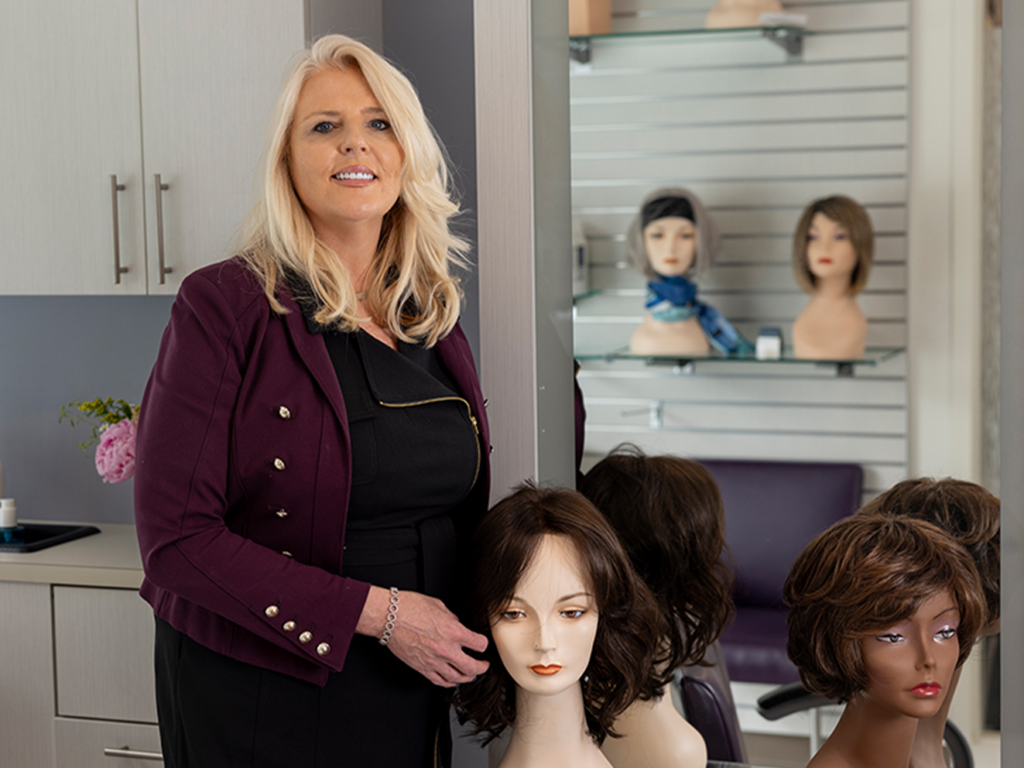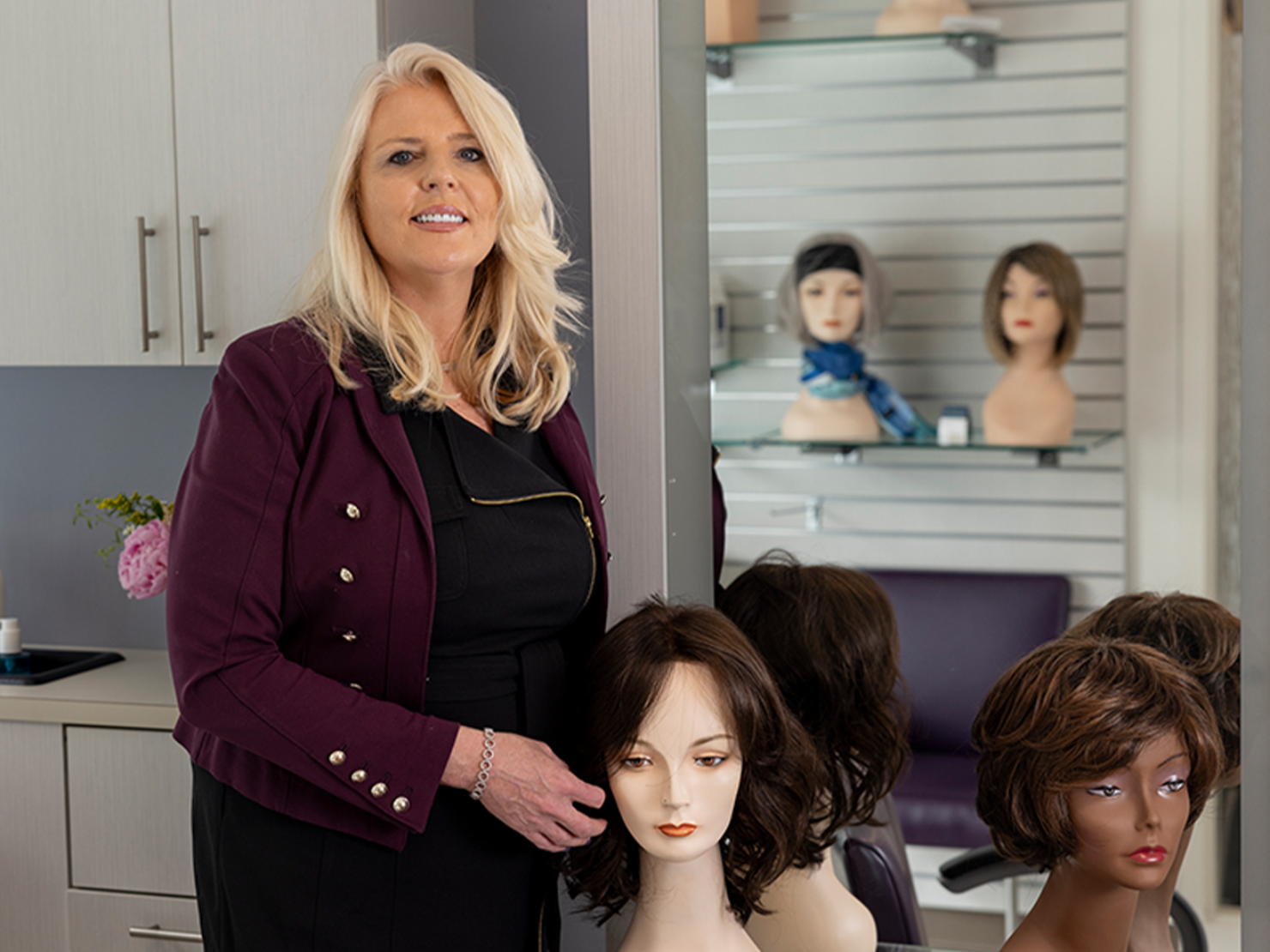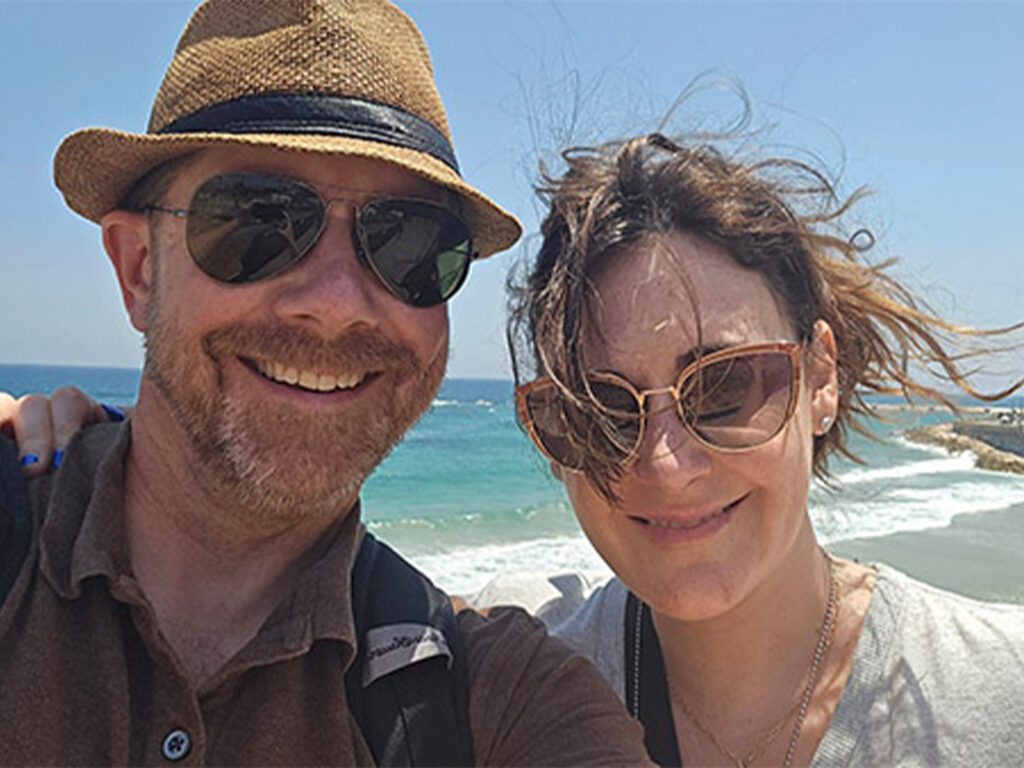Thirty years ago, Kathy Bazazi was managing a hair salon in Harvard Square when she received a letter in the mail asking for help opening an oncology-focused boutique at Massachusetts General Hospital. Kathy immediately called the number listed and said, “Don’t fill the position!” She was soon offered and accepted the role, and has been operating Images Oncology Boutique ever since.
At Images, Kathy and her team specialize in assisting cancer patients with wigs and prosthetics. They also help with any appearance challenges the patient might be facing, such as teaching them to fill in newly lost eyebrows, helping them match their eyebrow pencil shade to their new wig, assisting with their changing skincare needs and providing specialized apparel for women who have had a mastectomy.
“Many of the patients who come into the Images Boutique are under the tremendous burden of navigating their treatment protocol, coping with illness and side effects and struggling to make sure it’s all paid for,” Kathy says.
Kathy has been a part of the cancer community in Boston since her cousin was diagnosed when they were teenagers, motivating her to get involved with programs like Look Good Feel Better, a nonprofit organization that helps patients across Boston address the outward effects of treatment. The opportunity to open Images Boutique at Mass General seemed perfect for her — “I could help people, and do hair,” she says.
Share for Hair
The LVC, the hospital’s volunteer-led auxiliary group, supports patients by covering the cost of wigs for those in need thanks to donor support and to staff, patients and visitors who shop at their six retail shops.
“We see a lot of single moms, elderly folks on a fixed income, folks that have no way to pay for a wig but might not be ready to tell people they have cancer when they start to lose their hair,” Kathy says.
Wigs can cost anywhere from several hundred to several thousand dollars and are infrequently covered by insurance. “When these patients find out the LVC’s Share for Hair program is able to cover the cost of their wig, it’s such a moment of relief for them. It makes an enormous difference in their lives,” she says.

Kathy recalls the LVC gifting a wig to one patient just in time for the holiday season. She was concerned about her children and grandchildren seeing her without hair but left Images with a custom wig free of charge, crying tears of joy. “It makes my job so special, to be able to offer patients a tangible solution that very day and send them on their way with one less thing to worry about,” she says.
For many patients, hair loss caused by cancer treatment can be disruptive to the daily lives that they are fighting to keep as unaffected by their diagnosis as possible. It can prevent them from attending weddings, turning their Zoom camera on at work or saying goodbye to their child at school drop off.
For some, the prospect of hair loss forcing them to disclose their diagnosis before they’re ready can even hold them back from going through with their treatment plan. “Access to a wig is crucial for so many patients, to give them the confidence and strength to get through not only their cancer treatment, but all the demands of life that don’t just stop with a diagnosis,” Kathy says. “The Share for Hair program allows patients to maintain their dignity and privacy, giving them back a piece of their identity.”
“Part of the Club”
For more than three decades, Kathy has served cancer patients in Boston — even continuing to show up behind the salon chair when she herself was diagnosed with breast cancer. Following a routine mammogram, Kathy received a call from Mass General Cancer Center on her personal cell phone — she says she knew immediately they were calling with bad news. But, despite fighting her own battle against the disease, Kathy continued to be there for her clients.
“Sometimes someone would say, ‘Are you wearing a wig too?’ and I’d say, ‘Yes, I sure am!” Kathy says. She credits the cancer program with supporting her through treatment — “When they told me it’d be a year of treatment, I thought ‘How am I going to get through that?’ but I just did, and they were there every step of the way, carrying me through.”
“The cancer center is there to help patients manage every side effect of treatment, and that extends to the work we do at Images,” Kathy says. “Share for Hair is an essential part of patients’ care plan, helping them to manage all the ways that hair loss can impact their life.”
To support the Share for Hair program, click here.









